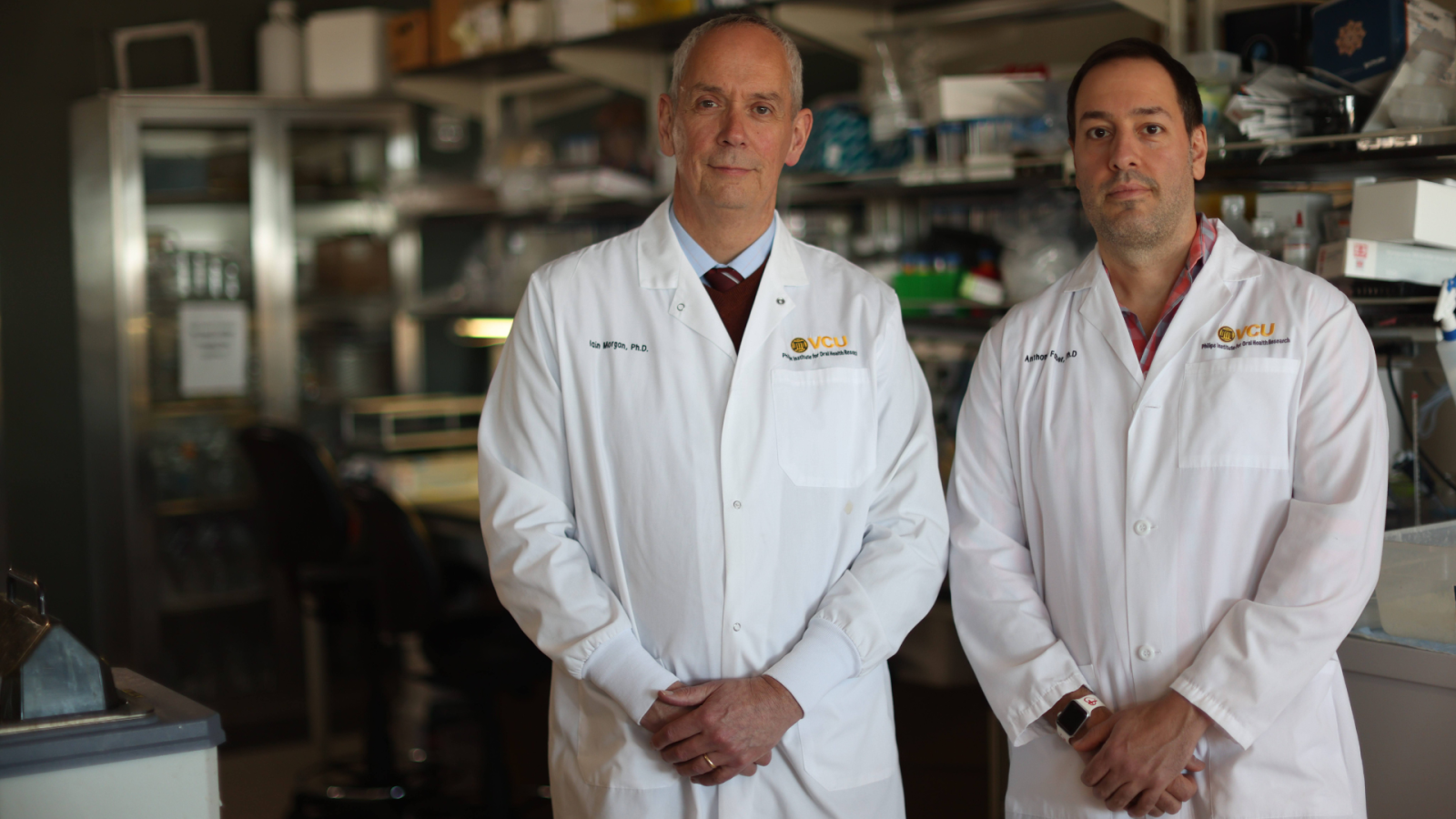
Iain Morgan, Ph.D. (left), director of the Philips Institute for Oral Health Research at the VCU School of Dentistry, and Tony Faber, Ph.D., associate professor, are working toward a breakthrough in research and care for head and neck cancers. Photo: Tyler Trumbo, MCV Foundation
Dentistry Unlocks Matching Funds for Oral Cancer Research
Head and neck cancers are the sixth most common type of cancer globally, and they are among the types of cancer becoming more prevalent in developed countries.
Research and treatment options have stagnated for decades, but researchers at the Philips Institute for Oral Health Research at the VCU School of Dentistry are on the cusp of a breakthrough.
They just need help to fund research and trials that could push them to the next level of care.
This fall, alumni and other supporters helped the School of Dentistry reach a goal of $250,000 to support a novel therapy for head and neck cancers.
The campaign kicked off in February and has successfully unlocked matching funds from alumnus John F. Philips, D.D.S., who agreed to double the impact of gifts by up to $250,000. In 1999, Dr. Philips established the institute in honor of his father, who died of throat cancer.
All of the funds raised for the Philips Institute will support continued research into a new type of targeted cancer therapy called SHP2 inhibitors — and their potential success in blocking the signaling in cancerous cells that ultimately fuel tumor growth in the oral cavity.
“We’re in an epidemic,” said Iain Morgan, Ph.D., director of the Philips Institute. “Many head and neck cancers remain resistant to current standards of care, leaving those patients with no therapeutic alternatives to prolong their lives.”
Dr. Morgan and his colleague Tony Faber, Ph.D., hope to develop clinical trials to test SHP2 inhibitors in combination with the current standard of care in clinical trials. Patients who have relapsed or have exhausted current treatment approaches would be recruited to these trials.
“Targeted therapies that were traditionally developed for other cancers like lung or blood cancers do not work in the head and neck because the biology is different — the drugs just don’t match what’s going on in these cancers,” Dr. Faber said. “But things are changing — the chemistry has gotten more sophisticated, and the drugs are able to do things they weren’t able to do 10 or 15 years ago. We’re hoping to continue that exciting progress.”
If you would like to support oral health research at the School of Dentistry, please contact Gloria Callihan, the school’s associate dean for development and alumni relations, at 804-828-8101 or gfcallihan@vcu.edu.


